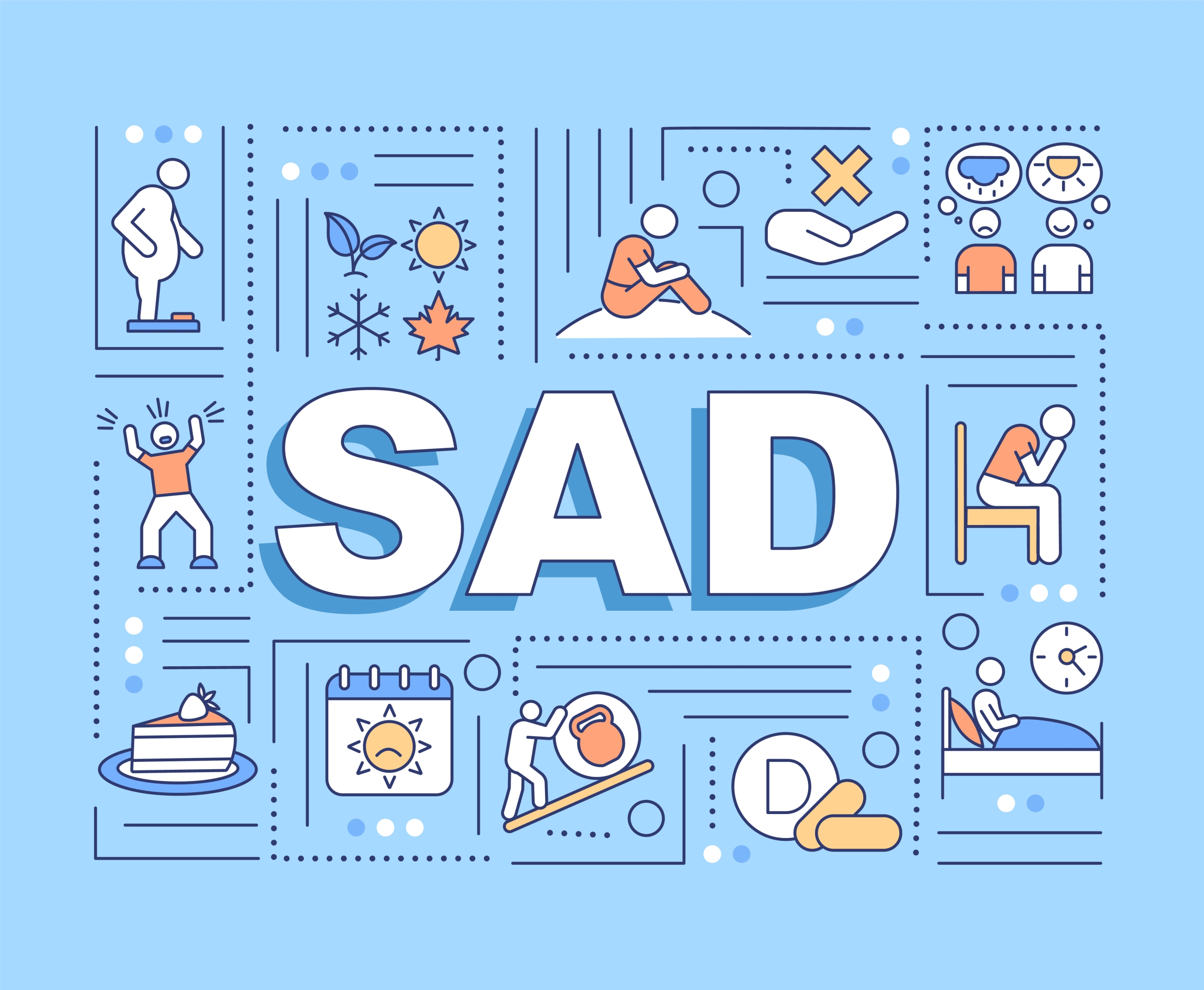Winter blues. Cabin fever. Seasonal depression.
Most people can relate to feeling this way in the winter, especially in the Northeast where we may only see the sun occasionally during the winter season. The symptoms can range from mild to more severe symptoms that can affect our day-to-day functionality.
What is Seasonal Depression?
Seasonal depression or Seasonal Affective Disorder (SAD) affects every individual differently, but in general it is the tendency to feel more down, depressed, less motivated and a bit more lethargic during the darker, winter months.
Symptoms can include the following:
- Difficulty with sleep patterns (specifically waking up on time)
- Daytime fatigue
- Carbohydrate craving
- Loss of motivation
- Anxiety
- Reduced social contact
- Weight gain
- Depressed mood
- Loss of energy.

What Causes Seasonal Depression?
There are a few possible reasons for seasonal depression. One stems from an evolutionary theory that suggests it’s because we would historically ‘hibernate’ during this time of year for survival, and the instinct to do so continues to be present in our brain. Another theory suggests that limited exposure to sunlight during winter months disrupts our internal clock or circadian rhythm, altering the production of melatonin (a hormone that plays a role in sleep) and serotonin (a neurotransmitter that plays a role in mood regulation).

What Can You Do To Feel Better During the Winter Months?
Depending on the symptoms you’re experiencing, there are many ways to cope during the winter season. Here are five ways to help fight the effects of seasonal depression:
- Consider light therapy. Some literature suggests that using a light therapy box 20 minutes a day can help simulate sun exposure and promote melatonin production.
- Increase exposure to natural Natural sunlight, especially early morning light, has been shown to promote melatonin production. Going for a quick walk in the morning can help.
- Take care of your general health and wellness. This includes:
- Maintaining a regular exercise routine.
- Keeping to a regular sleep schedule, going to bed and waking up at the same time every day.
- Reducing screen time, especially at night. Put phones and other devices away and turn off the television when you are lying in bed.
- Consider significantly limiting your time on social media channels – several recent studies suggest that social media can lead to negative feelings like addiction, anxiety, depression, isolation and FOMO (fear of missing out).
- Participating in regular social interaction with people who make you feel good about yourself.
- Cognitive Behavioral Therapy (CBT). CBT is a form of talk therapy that can help you develop better ways to help ourselves and solve our problems.
Selective Serotonin Reuptake Inhibitors (SSRIs). SSRIs are medications that can help combat more serious symptoms of seasonal depression when other methods aren’t as effective.

You do not have to suffer alone. If you think you are struggling with seasonal depression, please talk to your primary care provider to discuss your symptoms and possible treatment plans.
About the Author
Kate Warden, PhD, MSCP, Associate Program Director for Psychiatry Residency and Director of Behavioral Medicine for Family Medicine Residency Program at Mohawk Valley Health System.

